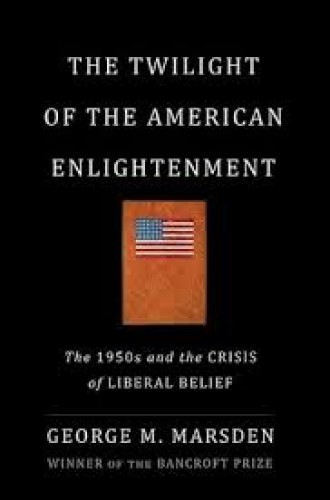The Twilight of the American Enlightenment, by George M. Marsden
Among those historians who openly identify as believing Christians, George Marsden stands alongside perhaps only Mark Noll at the pinnacle of the profession. Every scholar of American history, believer or not, knows who Marsden is.
What has been so remarkable about his professional fame is the way he has blended the demands of the secular academy with his Protestant faith. By using the methods of the secular profession to answer questions provoked by his Christianity, he has written transformative books on American evangelicalism, the place of Christianity in higher education, and Jonathan Edwards, his biography of whom is the definitive one on America’s greatest theologian. Marsden has won all the big awards, too, including the prestigious Bancroft Prize and even a Guggenheim, and he served as the crown jewel in the University of Notre Dame’s free-spending attempt to gather the most talented Christian scholars in all of academia.
He did all this while continually pushing back against his fellow evangelical scholars, whom he viewed as overly parochial. While they were interpreting the past by falling back on scripture-as-evidence or by explaining things as “God-ordained,” Marsden reminded them to leave the supernatural aside and “support the rules necessary for constructive exchange of ideas in a pluralistic setting.”






